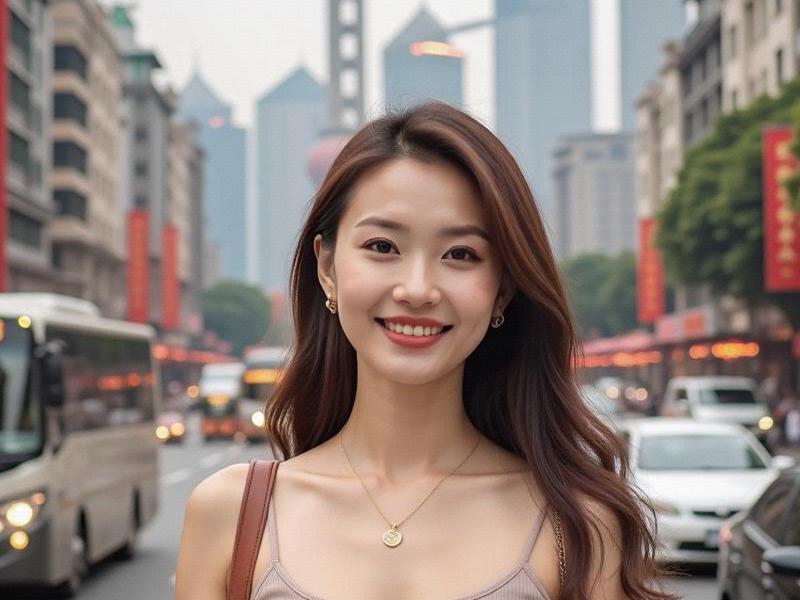
Behind the frosted glass doors of Cloud Nine, Shanghai's most exclusive members-only club, general manager Vincent Wu adjusts a Ming Dynasty-inspired chandelier while discussing the venue's upcoming collaboration with the Shanghai Symphony Orchestra. "Modern entertainment isn't just about bottle service and DJs anymore," explains Wu, gesturing toward their newly installed holographic art wall. "Our members expect cultural enrichment alongside premium hospitality."
This philosophy encapsulates the dramatic evolution of Shanghai's high-end entertainment scene. Once dominated by smoky KTV parlors and ostentatious nightclubs, the city's premium venues have matured into sophisticated social hubs where global business meets Chinese aesthetics. Industry data reveals surprising trends:
- 68% of luxury venues now incorporate traditional Chinese elements (tea ceremonies, calligraphy corners)
- Membership fees at top-tier clubs have increased 320% since 2020, averaging ¥288,000 annually
- 42% of revenue comes from daytime business meetings rather than nighttime entertainment
上海龙凤419足疗按摩 - The "entertainment restaurant" concept has grown 570%, blending fine dining with live performances
At the intersection of the Bund and Nanjing Road, The Pearl Lounge exemplifies this new paradigm. The three-story establishment houses a Michelin-starred Shanghainese restaurant, a jazz club featuring both local and international artists, and private negotiation rooms equipped with AI translation technology. "We've hosted everything from billion-dollar mergers to avant-garde poetry slams," remarks creative director Isabelle Chen. "The lines between business, culture, and leisure have completely blurred."
The transformation reflects broader shifts in Shanghai's social fabric. Where expat-focused clubs once dominated, venues like Dragon Gate now cater to China's new generation of cosmopolitan elites - young entrepreneurs equally comfortable discussing blockchain in English while appreciating kunqu opera. The club's signature "Silk Road Nights" alternate between electronic DJ sets and traditional instrument performances, often merging both in unexpected collaborations.
上海花千坊龙凤 Service standards have reached unprecedented levels. At Cloud Nine, facial recognition grants members seamless entry while AI systems track preferences - automatically adjusting lighting, music, and even cocktail ingredients based on individual profiles. "We know which chair a member prefers before they arrive," reveals service director Olivia Zhang, demonstrating their predictive seating algorithm.
Cultural preservation plays an increasing role. Several venues have partnered with Intangible Cultural Heritage holders to offer everything from private shadow puppet shows to miniature clay sculpture workshops. The Renaissance Club's "Jiangnan Evenings" feature rotating artisans from surrounding provinces demonstrating centuries-old crafts to small groups of members.
The business impact is substantial. Shanghai's premium entertainment sector now generates ¥87 billion annually, with 32% coming from corporate accounts. "These venues have become essential extensions of the boardroom," notes NYU Shanghai business professor David Wei. "The relaxed yet refined atmosphere facilitates deals that wouldn't happen in sterile office environments."
上海品茶网 Challenges persist, particularly regarding exclusivity and accessibility. While some criticize the velvet rope economy, innovators like The Commune are experimenting with hybrid models - maintaining elite memberships while offering monthly cultural events open to the public. "True luxury shouldn't isolate," argues founder Zhao Min, whose venue reserves 20% of tickets for local university students.
As Shanghai positions itself as a global capital of culture and commerce, its entertainment establishments evolve accordingly. The upcoming 2026 opening of The Celestial - a 58-story vertical entertainment complex featuring rotating art galleries, a sky-high tea ceremony space, and Asia's first underwater negotiation lounge - suggests the city's vision for premium leisure continues ascending to new heights, both literally and metaphorically.
What emerges is a portrait of Shanghai's entertainment scene as a microcosm of the city itself: simultaneously rooted in tradition and relentlessly innovative, unapologetically luxurious yet increasingly purposeful. In these rarefied spaces between business and pleasure, between East and West, Shanghai's elite are rewriting the rules of social engagement for the Asian Century.
